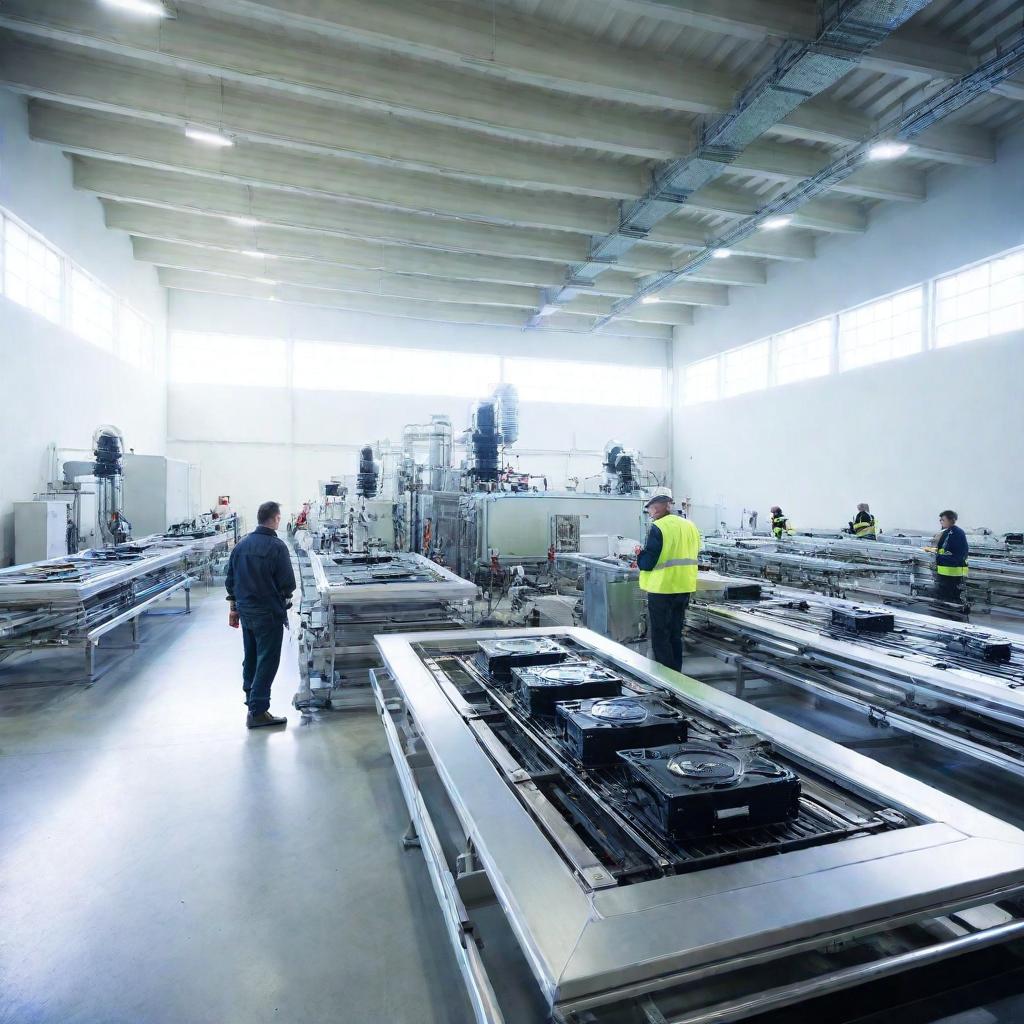Leveraging AI for Enhanced Efficiency in Manufacturing: A Comprehensive Overview

-
26/1/2025
In recent years, the landscape of manufacturing has undergone significant transformation, with artificial intelligence (AI) playing a pivotal role in enhancing efficiency and innovation. From streamlining operations to predictive maintenance, the impact of AI on manufacturing is vast and evolving.
One of the most immediate effects of AI is its ability to improve predictive maintenance practices. By analyzing data from various sensors, AI can predict equipment failures before they occur, minimizing downtime and reducing maintenance costs. For example, AI-powered predictive models can assess the condition of machinery based on historical data, enabling companies to address potential issues proactively.
Inventory management is another area where AI is making a substantial difference. Through machine learning algorithms, manufacturers can optimize stock levels, ensuring that they adhere to demand forecasts accurately. This reduces both excess inventory and the risk of stockouts, leading to better resource management and cost efficiency.
The use of AI in quality control is transforming how products are checked for defects. Traditional methods, which are often manual and time-consuming, can be inefficient and prone to human error. AI systems, equipped with computer vision technology, can inspect products rapidly and with a high degree of accuracy, identifying defects that might be missed by human inspectors.
An interesting implementation of AI in manufacturing is evident in assembly line optimization. AI systems can monitor and analyze the workflow, identifying bottlenecks and suggesting improvements for process efficiency. This not only speeds up the production line but also enhances overall equipment effectiveness.
AI is also fostering smarter supply chains through its role in partner collaboration and logistics optimization. By leveraging AI tools, manufacturers can better manage their supply chains, ensuring timely deliveries and reducing logistics costs. This is achieved through improved demand forecasting and real-time tracking of shipments, providing a seamless supply chain experience.
In addition to operational improvements, AI has a profound impact on innovation within the manufacturing industry. It facilitates custom product design by analyzing market trends and customer preferences, thus enabling companies to tailor products that meet specific consumer needs effectively.
The integration of AI-driven systems in the manufacturing process has far-reaching implications not just for businesses but for the workforce as well. By automating repetitive and mundane tasks, AI allows workers to focus on more critical responsibilities that require human insight and creativity.
As AI technology continues to evolve, its application in the manufacturing sector is expected to expand further. From real-time analytics to autonomous machines, the potential benefits are immense. Companies that embrace AI will be better positioned to stay competitive in a rapidly changing market, driving innovation and productivity.
Ultimately, the partnership between AI and manufacturing is creating a more efficient, responsive, and innovative industry that meets consumer demands more precisely. As technologies advance, it's crucial for industry leaders and teams to stay informed and adaptable, leveraging AI to unlock unprecedented opportunities and growth.
